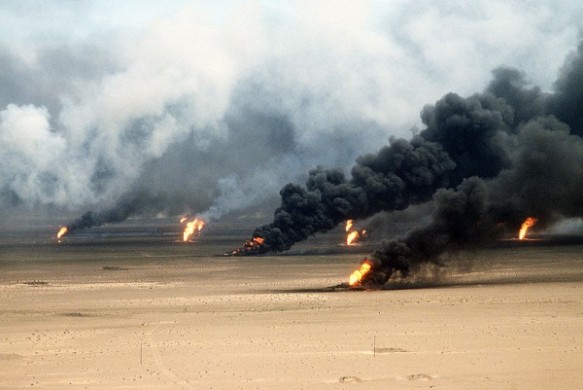I warned on 26 November that the fallout from whatever decision OPEC made about maintain their oil production at its current levels would have a significant impact. At the time, I asked the question, “Economics or Evolution?” After further consideration, I think I forgot to begin that last word with an “R.”

What’s Really Going On?
What OPEC is doing cannot be understood without some digging beneath the headlines. Even then, every report must be sifted in order to get to the nitty gritty. This decision is not about current production. It is about maintaining control of their market share. The decision that was made was for the good of the cartel, not for the good of every country involved. When that kind of decision is made, loyalty within a cartel can become severely stressed.
Iranian Oil Minister Bijan Zanganeh told CNN, “I don’t think that this decision is beneficial to all OPEC member countries because some countries in OPEC were against this decision. But because of the unity and solidarity of OPEC, we decided not to protest.” Read into that that Iran has bigger problems.
Suhail bin Mohammed al-Mazouri, the UAE Energy Minister, added that, “The decision benefits the market, the customers and the world economy. OPEC countries will compensate any decline in the world supply as we are the most cost-effective producers compared to unconventional.” Read into that that there is something going on that is just the opposite of benefiting the market, the customers and the world economy.
Just in case it hasn’t quite sunk in yet, the Saudi’s convinced the other members to remain united and allow prices to drop regardless of the short-term impact. This decision is just a tactic – and a wise one from OPEC’s perspective – to put non-OPEC oil producing nations in a position where they are unable to operate profitably. Most specifically, that would include the U.S., Canada, Australia and Israel, and especially the fracking operations that are leading the U.S. to less dependence on foreign oil.
Kuwait’s Oil Minister, Ali Saleh al-Omair, told the cartel members that they should expect to stay in their holding pattern until oil reached as low as $60 per barrel. One analyst observed that, “It should be in the interest of OPEC to live with lower prices for a little while in order to slow down development projects in the United States.” Clearly, the strategy is that “energy producers with less debt and more cash are in better position to navigate through an extended period of lower oil prices.”
That may be difficult for some OPEC nations to do. Oman’s petroleum production accounts for 75% of the country’s entire revenue stream. But its budget is balanced only when the price of oil is at $85 per barrel or higher. (Note: Oman is not an official OPEC member, but is an “observer.”) Adding to Oman’s economic problem is the fact that its reserves are rapidly dwindling and the cost of reclaiming the oil is skyrocketing because of the special methods necessary to bring those last reserves to the surface.
The Dangerous Immediate Effects on Others
- Brent crude is currently at $71.11 for January 15th contracts.
- The bottom is dropping out of energy stocks on the LSE.
- The S&P Crude Oil Total Return Index ETN has dropped nearly 40% since July to $16.40.
- Australia’s energy sector has lost $12.3 billion in market capitalization since the OPEC meeting.
Meanwhile, back at the pump.
The blissfully ignorant continue to rejoice over the lower prices at the pump. I can’t help but wonder what they will be thinking when the price war turns into something much larger and much uglier as an already unstable, global economy is shaken to its very core. If ignorance is bliss, most people are already blistered.

 Hot Features
Hot Features













